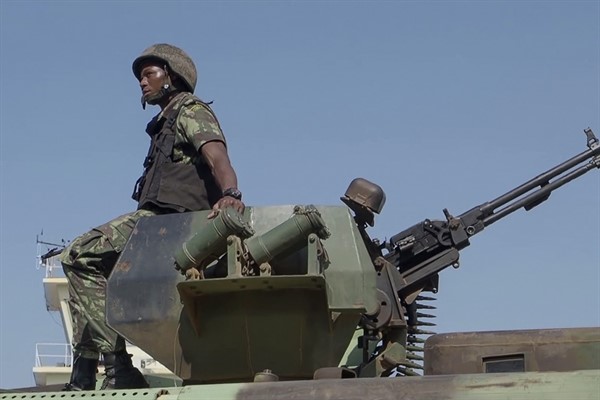Mozambican President Felipe Nyusi created a stir in early November, when he dismissed Defense Minister Jaime Neto and then Interior Minister Amade Miquidade within 24 hours of each other. This shake-up in the country’s security leadership, coming less than two years after both had taken up their posts, likely signals the start of a broader effort at managing Mozambique’s image abroad as it seeks to reassure would-be investors that the government has a handle on internal security.
The tenures of both Neto and Miquidade coincided with a period of rapid expansion of the Islamic State affiliate Ahlu-Sunnah Wa-Jama, or ASWJ, insurgency in Cabo Delgado province in northern Mozambique. During the past two years, the group evolved from staging attacks against isolated villages and individuals, to mounting audacious, coordinated operations against major towns. The assault in March on Palma, a coastal town that served as a hub for liquefied natural gas, or LNG, exploration, was the first to directly affect the expatriate community working on the major energy projects there, increasing international attention to the trajectory of this conflict and its humanitarian implications.
The Palma attack also brought into sharp focus the extent to which the insurgents outmatched the security services, contributing to the French energy giant Total’s decision to pause its investment and exploration activities in the area. The halt to its $20 billion gas liquefaction plant near Palma, and the retreat of other foreign investors from Cabo Delgado, likely served as a wake-up call to Mozambican elites—who were counting on the $66 billion revenue experts had predicted this project would earn—about the direct threat the conflict could pose to their interests.

